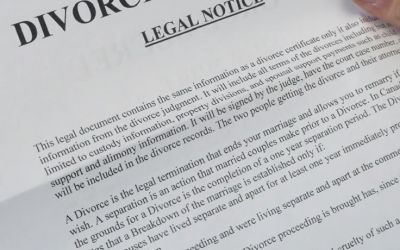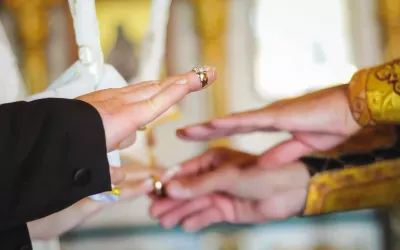Sharia Marriage Rules in the UAE: A Guide for 2025 Couples
Table of Contents ▼
Could new rules impact your marriage? Learn what you need to know for 2025
If you’re planning to marry in the UAE in 2025, it’s essential to be aware of the latest Sharia marriage rules. The legal landscape has evolved, and a failure to understand the new guidelines could lead to delays or confusion during the marriage process. Whether you’re a first-time bride or groom or an expat hoping to marry under Sharia law, understanding these rules is key to ensuring a smooth process.
This blog outlines the significant updates to Sharia marriage rules in 2025, focusing on documentation, legal changes, and essential requirements to keep in mind.
Understanding Sharia Marriage Rules in the UAE
The UAE operates a dual legal system in which Sharia marriage rules govern matters like marriage, divorce, and inheritance for Muslim citizens and residents. When a couple decides to marry under Sharia marriage rules, they are entering into a marriage that is both religiously significant and legally binding under UAE law.
These rules ensure that the marriage is recognized in both religious and legal contexts, providing couples with the necessary legal protections and ensuring the marriage aligns with Islamic principles.
Key Requirements for Sharia Marriage in 2025
Essential Documents You’ll Need
Marriage under Sharia marriage rules requires specific documentation that must be gathered and submitted correctly. Failure to provide the correct paperwork could cause delays in the process, so it’s essential to know exactly what is required:
For UAE Nationals:
- Emirates ID
- Family Book (Khulasat al-Qaid)
- Medical fitness certificate
- Pre-marital screening certificate
- No-objection certificate from the family court (for those who were previously married)
For Expat Muslims:
- Valid passport with UAE residence visa
- Attested birth certificate
- Certificate of no impediment to marriage from home country
- Medical fitness certificate
- Pre-marital counseling certificate
- Salary certificate or employment letter
Age and Consent Requirements
According to Sharia marriage rules in the UAE, both parties must be at least 18 years old to legally marry. Exceptions can be made with court approval for special circumstances. Additionally, mental capacity and free consent are required to ensure both parties fully understand and agree to the marriage.
For brides under 25 who are marrying for the first time, parental consent is typically required, which reinforces the importance of family involvement in the decision-making process.
Recent Updates to UAE Sharia Marriage Laws
2025 Legislative Changes
In 2025, the UAE introduced several changes to Sharia marriage rules, aiming to streamline the marriage process and offer better protection for both parties involved. Some significant updates include:
- Expanded pre-marital counseling: The counseling requirement has been broadened to cover not only emotional health but also financial planning, conflict resolution, and family planning. This initiative aims to reduce the divorce rate by ensuring couples are well-prepared for married life.
- Clearer documentation requirements: Some documentation processes have been simplified to reduce the paperwork burden and increase efficiency.
- Increased protection for spouses: New legal protections for both parties during and after the marriage process have been introduced, ensuring fairness and justice in case of disputes.
These updates reflect the UAE’s commitment to modernizing its marriage laws while maintaining Islamic principles.
Digital Integration and Processing
In line with the UAE’s efforts to modernize the marriage process, digital platforms have been introduced for submitting documents, booking appointments, and tracking marriage applications. These online systems improve efficiency, reduce errors, and allow couples to stay updated on the status of their marriage application. This move towards digital integration helps simplify the process for both locals and expats.
The Marriage Contract Process
Nikah Ceremony Requirements
The Nikah ceremony must be performed by an authorized Islamic marriage officer (Ma’zoun). To complete the ceremony, the following requirements must be met:
- Presence of two male witnesses or one male and two female witnesses
- Recitation of marriage contract terms in Arabic
- Agreement on the mahr (dower) amount
- Signatures from both parties and witnesses
The mahr is a critical aspect of the marriage contract. It represents the husband’s financial commitment to the wife and must be agreed upon before the ceremony. It can be immediate or deferred, and both parties must specify the terms clearly in the marriage contract.
Court Registration
After the Nikah ceremony, the marriage must be registered with the local Sharia court within 30 days. This is necessary to make the marriage legally recognized under UAE law.
The court will verify the documents, review the ceremony details, and issue an official marriage certificate. This certificate is required for various legal processes, such as visa applications, property transactions, and child registration.
Financial Obligations and Rights
Understanding Mahr and Financial Responsibilities
Under Sharia marriage rules, the mahr is a fundamental part of the marriage contract. The mahr represents the husband’s financial responsibility to the wife and must be agreed upon before the marriage ceremony.
In addition to the mahr, husbands are required to fulfill nafaqah (maintenance), which includes providing housing, food, and medical care for the wife. These responsibilities are enforceable by law under the UAE’s legal system, ensuring that wives are financially supported throughout the marriage.
Property and Asset Considerations
Under UAE Sharia marriage rules, property ownership is separate during marriage. Each spouse retains ownership of the property they brought into the marriage or acquired individually during the marriage. However, jointly acquired property and gifts exchanged between spouses follow specific Islamic guidelines.
It’s crucial for both parties to be aware of these rules to avoid confusion or disputes regarding ownership and financial matters in the future.
Rights and Obligations Under UAE Sharia Marriage Rules
Spousal Rights and Responsibilities
Marriage under Sharia marriage rules creates mutual rights and obligations. Husbands have the financial responsibility to provide maintenance, housing, and medical care. Wives have the right to respectful treatment, financial support, and personal autonomy within the limits of Islamic law.
Both spouses share responsibilities for raising children, maintaining the marital relationship, and making joint decisions about the family. The UAE courts enforce these rights, intervening when necessary to uphold fairness.
Child Custody and Parental Rights
In accordance with Sharia marriage rules, child custody is determined by the UAE courts, which base their decisions on Islamic principles. Recent updates emphasize the best interests of the child, considering factors such as stability, education, and emotional well-being.
Special Circumstances and Considerations
Interfaith Marriage Considerations
Sharia marriage rules in the UAE allow Muslim men to marry women from other Abrahamic faiths (Christians and Jews). However, these marriages require additional documentation and must be processed according to specific guidelines.
For Muslim women, marriage to a non-Muslim man requires the husband’s conversion to Islam before the ceremony can take place under Sharia marriage rules.
Second Marriage Procedures
Under Sharia marriage rules, polygamy is allowed under strict conditions. In the UAE, the husband must demonstrate his ability to financially support multiple wives and ensure equal treatment. The UAE courts carefully review second marriage applications to ensure that they meet Islamic requirements.
Practical Steps for Your Sharia Marriage
Timeline and Planning
Plan your Sharia marriage at least 2-3 months in advance. This gives you ample time to gather documents, complete medical examinations, and attend appointments without rushing the process.
Choosing the Right Ma’zoun
Select a qualified Ma’zoun who is familiar with your specific situation. Their experience in managing marriages similar to yours will ensure a smooth process and adherence to Sharia marriage rules.
Common Challenges and Solutions
Document Attestation Issues
Document attestation, particularly for documents issued abroad, can take time. Work with experienced attestation services and ensure that you allow extra time for complex cases.
Language Barriers
All official documents and procedures are conducted in Arabic. If you’re not fluent, consider hiring a certified translator or bringing an Arabic-speaking friend to assist you during important appointments.
Conclusion
Navigating Sharia marriage rules in the UAE ensures that your marriage is legally recognized and spiritually valid. With the updates to the rules in 2025, the process is more streamlined and accessible for both locals and expats.
By staying informed, preparing in advance, and following the correct procedures, you can ensure that your marriage process is smooth and stress-free. For expert guidance and professional assistance, visit Easy Wedding and begin your Sharia marriage journey today.


